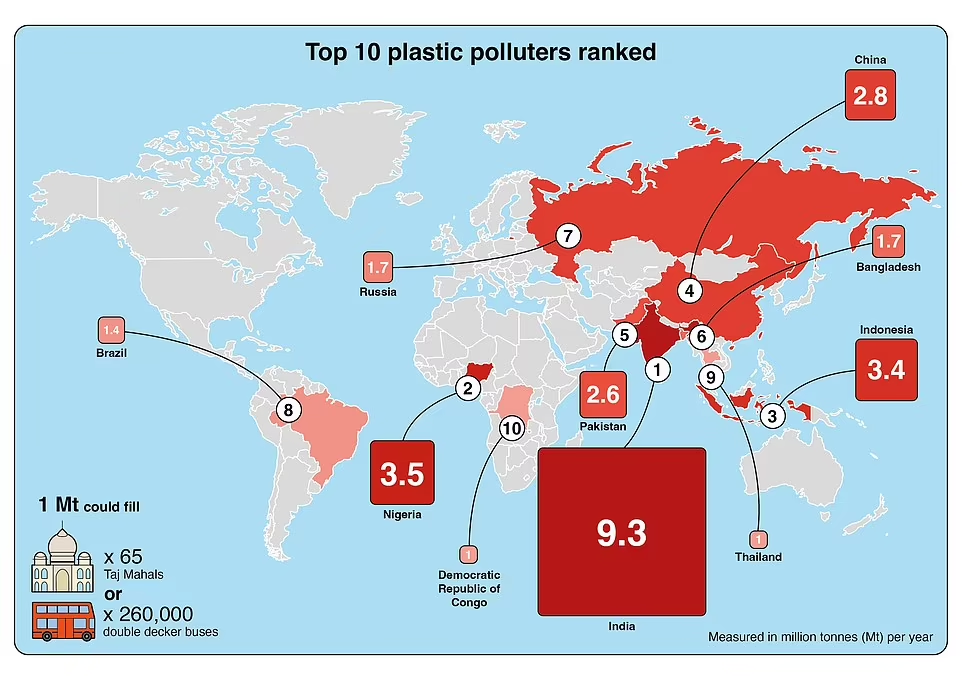FIJ
Research conducted at the University of Leeds shows that Nigeria is only behind India as the country with the highest cases of plastic pollution in the world.
According to a September 4 publication by the university, Nigeria produced 3.5 million tonnes of plastic waste in 2020 to claim the spot of the second biggest plastic polluter in the world.
For producing 9.3 million tonnes, which is around a fifth of the total 52 million tonnes of waste released worldwide, India was number one on the list.
The research ranked Indonesia third with 3.4 million tonnes in plastic pollution.
China, previously reported to be the world’s biggest polluter, ranked fourth with 2.8 million tonnes. This was a result of the country’s improvements in collecting and processing waste over recent years.

Pakistan ranked fifth with 2.6 million tonnes; Bangladesh was sixth with 1.7 million tonnes; Russia had 1.7 million tonnes of plastic pollution in seventh place; Brazil eighth with 1.4 million tonnes; Thailand ninth with one million tonnes; and the Democratic Republic of Congo was 10th also with one million tonnes.
The researchers used Artificial Intelligence (AI) to model waste management in more than 50,000 municipalities around the world. The model then allowed the team to predict how much waste was generated globally and what happens to it.
The research also revealed that more than two-thirds of the planet’s plastic pollution came from uncollected rubbish from almost 1.2 billion people, which amounts to 15% of the global population, living without access to waste collection services.
Each year, about 400 million tonnes of plastic is produced. Many plastic products are single-use, hard to recycle and can stay in the environment for centuries.
Some plastics contain potentially harmful chemical additives which could pose a threat to human health, particularly if they are burned in the open.
Researchers say this first-ever global inventory of plastic pollution provides a baseline that can be used by policymakers to tackle a looming environmental disaster.
The research team obtained data on solid waste management at the municipal level from over 500 cities for this research. The data came from 172 countries.
THIS STORY FIRST APPEARED IN FIJ



Connect with us on our socials: